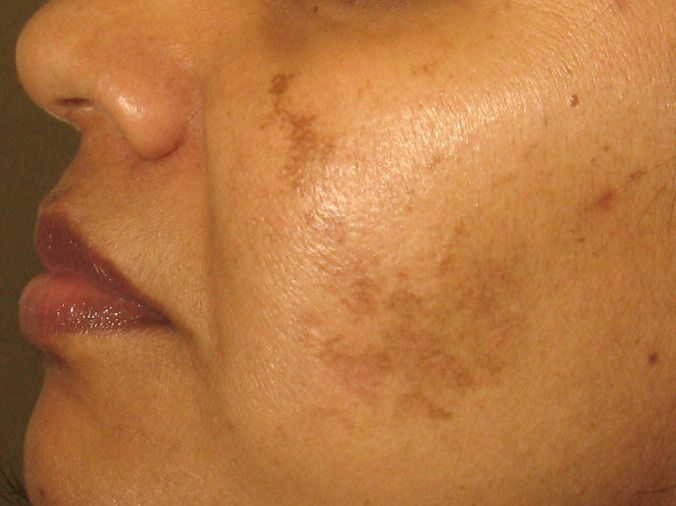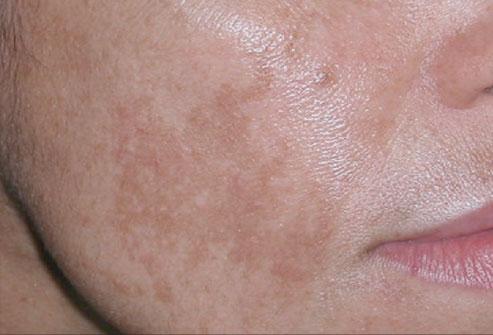In certain cases, when acne clears up, there can be pigment left in the skin underneath the spot where the acne was. The condition is called post-inflammatory hyperpigmentation. It’s common for people to think their skin actually scarred while healing, but this is incorrect. Fortunately, skin pigment from acne will usually clear up on its own without any medical intervention.
Skin Pigment From Acne

Hyperpigmentation has a variety of causes including oral contraceptive use, surgeries, hormonal changes, sun damage and a few others. Post-inflammatory hyperpigmentation that sticks around after an occurrence of acne does so because of the natural coloring agent in your skin called pigment. With the condition it collects in a patch on your skin.
Potential Issues
Skin pigment from acne can occur and pretty much anyone, including any race, and is actually pretty common. Those who naturally carry more pigmentation in their skin are much more likely to experience pigmentation after acne. The American Academy of Dermatology, reports that many people actually have greater issues with the pigment rather than the initial acne itself.
A bright side is that the condition is not in any way a threat to your mortal health. Those that love to go out sun tanning will be sad to hear that tanning makes the pigmentation worse.

Preventing Hyperpigmentation
Who are already affected by this condition, it would be wise to always apply protection to your skin before you go outside. Using a sunblock with an SPF at least 30 is generally advised. Applying the lotion to your skin at least 20 minutes before you go outside will make it more effective. To prevent further acne from occurring you should look for a water-based suntan lotion instead of oil-based.
Fixing Your Pigmentation
There are lightening creams available in most pharmacies and drug stores that can help return the color of your skin to it’s natural condition. You should look for the correct product however and use them with caution. Dermatologists recommend that you use a product containing 2% or less of the ingredient hydroquinone. Using a topical cream that contains more than the recommended amount of hydroquinone can result an untreatable color changes to your skin.
Dertmatological Advice
If you were to go to a dermatologist for help they would likely give you a similar regimen to the one that follows: A topical bleaching agent that is stronger than what you can get at the drugstore will likely prescribed. Alongside that tretinoin and cortisone will also probably be prescribed.
Those with little patience will probably be upset when they find out that treating this form of hyperpigmentation is a lengthy process. It may take up to 6 months to return the skin to its original condition. If all else fails, acidic creams that exfoliate the skin, or laser treatments maybe used, but only generally on those with very dark skin.